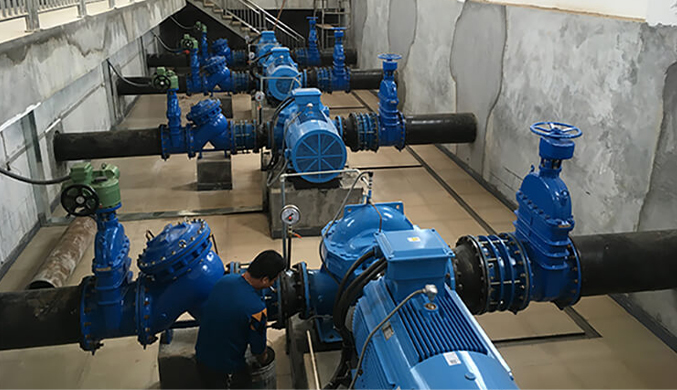Bantu
- Afrikaans
- Albanian
- Amharic
- Arabic
- Armenian
- Azerbaijani
- Basque
- Belarusian
- Bengali
- Bosnian
- Bulgarian
- Catalan
- Cebuano
- Corsican
- Croatian
- Czech
- Danish
- Dutch
- English
- Esperanto
- Estonian
- Finnish
- French
- Frisian
- Galician
- Georgian
- German
- Greek
- Gujarati
- Haitian Creole
- hausa
- hawaiian
- Hebrew
- Hindi
- Miao
- Hungarian
- Icelandic
- igbo
- Indonesian
- irish
- Italian
- Japanese
- Javanese
- Kannada
- kazakh
- Khmer
- Rwandese
- Korean
- Kurdish
- Kyrgyz
- Lao
- Latin
- Latvian
- Lithuanian
- Luxembourgish
- Macedonian
- Malgashi
- Malay
- Malayalam
- Maltese
- Maori
- Marathi
- Mongolian
- Myanmar
- Nepali
- Norwegian
- Norwegian
- Occitan
- Pashto
- Persian
- Polish
- Portuguese
- Punjabi
- Romanian
- Russian
- Samoan
- Scottish Gaelic
- Serbian
- Sesotho
- Shona
- Sindhi
- Sinhala
- Slovak
- Slovenian
- Somali
- Spanish
- Sundanese
- Swahili
- Swedish
- Tagalog
- Tajik
- Tamil
- Tatar
- Telugu
- Thai
- Turkish
- Turkmen
- Ukrainian
- Urdu
- Uighur
- Uzbek
- Vietnamese
- Welsh
- Bantu
- Yiddish
- Yoruba
- Zulu
Telephone: +86 13120555503
Email: frank@cypump.com
Nov . 18, 2024 04:03 Back to list
sewage treatment plant pumps
The Importance of Pumps in Sewage Treatment Plants
Sewage treatment plants play a crucial role in managing wastewater generated by residential, industrial, and commercial activities. To efficiently treat this wastewater, a range of sophisticated technologies and equipment are utilized, among which pumps stand out as essential components. This article delves into the significance of pumps in sewage treatment plants, their types, and the challenges they face.
Role of Pumps in Sewage Treatment
Pumps are responsible for moving sewage and wastewater through various stages of treatment. The sewage treatment process typically includes the following phases screening, primary treatment, secondary treatment, and tertiary treatment. At each of these stages, pumps are used to transport the sewage from one unit to another, ensuring a continuous flow through the entire system.
1. Screening Stage In the initial screening stage, pumps remove large solids and debris from the sewage to prevent damage to the equipment downstream. This is vital as it protects the pumps and other machinery, ensuring efficient operation.
2. Primary Treatment After screening, the sewage is directed to primary sedimentation tanks where gravity separates solids from the liquid. Pumps play a key role in moving the sewage into these tanks and later transferring the settled sludge for further treatment.
3. Secondary Treatment In the secondary treatment phase, biological processes are employed to degrade the organic matter. Aerobic and anaerobic bacteria break down pollutants, and pumps are utilized to maintain the flow of sewage, facilitating aeration and mixing within the treatment tanks.
4. Tertiary Treatment The final stage of treatment often involves filtration, disinfection, and nutrient removal. Pumps transport the treated effluent to various filtration mechanisms and disinfection units, ensuring that the wastewater meets regulatory standards before being released back into the environment or reused.
Types of Pumps Used
Several types of pumps are used in sewage treatment plants, each tailored to specific applications and characteristics of wastewater.
1. Centrifugal Pumps These are widely used due to their ability to handle large volumes of liquid and their efficiency in moving water. Centrifugal pumps are ideal for transferring treated water, as they can operate continuously with minimal maintenance.
sewage treatment plant pumps

2. Submersible Pumps Often utilized in situations where wastewater must be pumped from deep pits or wet wells, submersible pumps are designed to operate underwater. They are effective in mixed liquid environments and can handle solids up to a certain size.
3. Progressive-Cavity Pumps These pumps are particularly effective for thick sludges and are often used in the primary treatment phase. They can handle a variety of solids and provide a steady flow regardless of changes in viscosity.
4. Diaphragm Pumps Known for their ability to pump viscous and abrasive fluids, diaphragm pumps are often used in chemical dosing and sludge transfer applications within treatment plants.
Challenges Faced by Pumps
While pumps are critical to the operation of sewage treatment plants, they are not without challenges. Some of the key issues include
1. Clogging Pumps are susceptible to clogging due to debris, rags, or other foreign materials present in the sewage. Regular maintenance and monitoring are required to prevent downtime in operations.
2. Corrosion The corrosive nature of sewage can lead to the deterioration of pump materials over time. Selecting pumps made from corrosion-resistant materials is essential to prolong their lifespan.
3. Energy Efficiency Pumps consume a significant amount of energy in sewage treatment plants. Finding ways to improve their energy efficiency can lead to substantial cost savings and a reduced carbon footprint.
4. Wear and Tear Continuous operation can cause wear to pump components, leading to reduced efficiency and increased maintenance needs. Implementing predictive maintenance strategies can help mitigate these issues.
Conclusion
In conclusion, pumps are integral to the effective functioning of sewage treatment plants, facilitating the safe and efficient management of wastewater. Understanding the types of pumps, their roles, and the challenges they face is essential for operators and engineers in the wastewater management sector. Investing in advanced pump technologies and maintenance practices not only enhances the reliability of sewage treatment systems but also contributes to sustainable water management practices, ultimately protecting our environment and public health.
-
Custom Drilling Mud and Slurry Pump Supplier - High Efficiency, Tailored Solutions
NewsJun.10,2025
-
Supply Vertical Submersible Sewage Pump High-Efficiency WQ/QW Pumps Supplier
NewsJun.10,2025
-
Premium Sewage Ejection System & Pumps Efficient Waste Removal
NewsJun.09,2025
-
Premium Wholesale Slurry Pump Impellers Durable & Efficient Slurry Handling
NewsJun.09,2025
-
Top Sewage Pump Companies Durable Industrial Solutions for Efficiency
NewsJun.09,2025
-
Heavy Duty Slurry Pumps - OEM High Performance & Bulk Wholesale
NewsJun.09,2025










